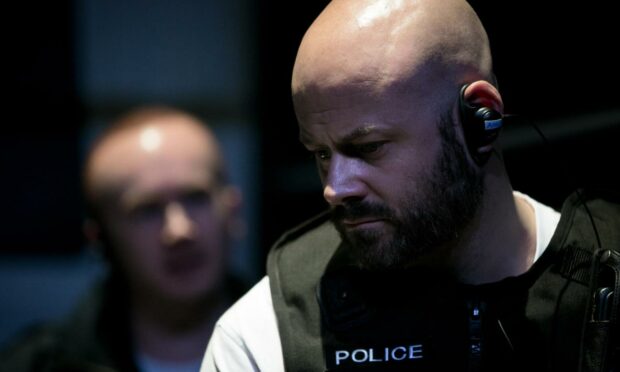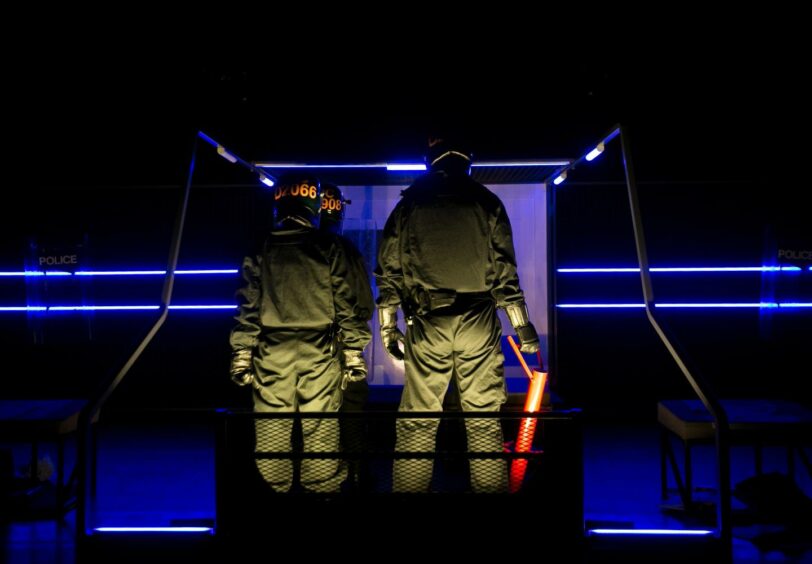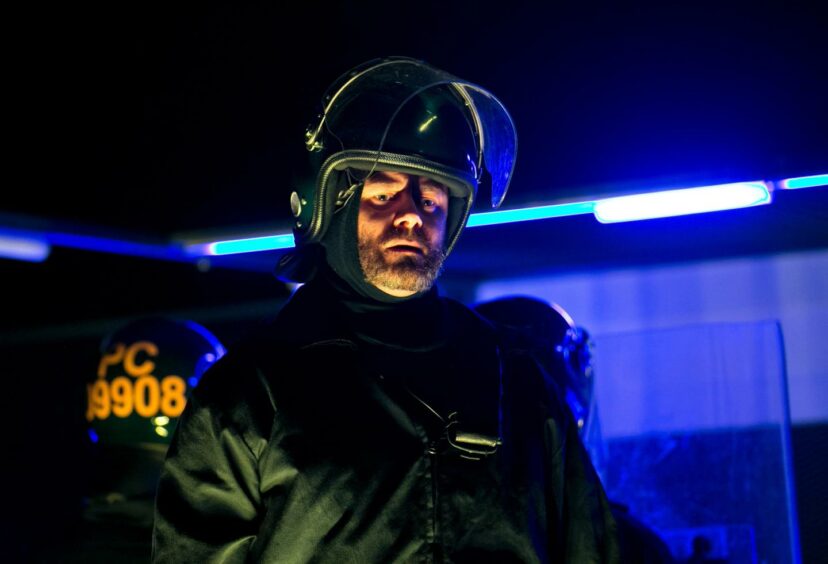Nearly five years ago, police officer turned actor Adam McNamara’s debut play Stand By debuted at the Edinburgh Fringe.
It gathered a bunch of good reviews and a Fringe First award for its authentic and uncompromising view of the modern police force.
Told through the interactions of four cops sitting in the back of a van as they suit up and prepare to carry out a raid, the audience listened in on earpieces to the personal tales of four characters trying to do their best in situations where they couldn’t hep but compromise.
Or in some cases compromised from the start as a default position.
Horrific, more recent stories
A lot has changed since then, and this revival of the play half a decade on comes in the wake of horrific recent news stories surrounding London’s Metropolitan Police force, not least the murder of Sarah Everard by a serving officer.
“I’m happy the play was really well-received at the time,” says McNamara, “but I also think it’s incredibly relevant nowadays, especially with the climate we’re in with regards to the police, and the public perception of them.
“It’s not a puff piece, it’s a very honest portrayal of cops’ opinions. It’s also a side to the police the audience and the public don’t get to see or hear, because they tend to put up a (front).”
Born in Dundee, McNamara was on the force for seven years, first around Forfar and Kirriemuir, and then in his home city.
Towards the end of his time he was also involved in amateur dramatics, a family tradition, and someone told him he was really good and that he should go to drama college.
From cop to actor and playwright
At the age of 30, he thought he’d missed the boat, but he auditioned for the Royal Scottish Academy of Music and Drama in Glasgow (now the Royal Conservatoire of Scotland) and was accepted.
Over the past 13 years he’s worked as a jobbing actor, with small parts in shows like Black Mirror and Casualty, and a six-year recurring role as a policeman in Eastenders.
He’s also worked onstage, including shows at the Dundee Rep and repertory runs of the National Theatre of Scotland’s Black Watch.
Most recently he was in last year’s Yael Farber adaptation of Shakespeare, The Tragedy of Macbeth, at the Almeida Theatre in London with Saoirse Ronan and James McArdle.
“Whenever I read for the part of a cop, I always thought they were written in such a cliched, stereotypical way,” says McNamara.
“For instance, on EastEnders I’d suggest I say a line a different way, and the director would say, ‘I’ve run that past the writers, they know what they’re doing.’ I was like, you know what? I’m going to start writing my own thing.”
The first thing he picked up a pen for was The Job, a cop series set in Dundee, which was commissioned by the BBC in London and worked on for two years.
In development hell
“It was in what’s known as development hell,” he says. “I got really frustrated with the stereotypical way they were wanting me to push it. Obviously, the unique selling point of me being there was the fact I used to be a cop. Then they kept asking me to move it to Manchester. I was like, no, I’m not happy doing that either.”
In the end they went their separate ways without the show being produced. But McNamara showed his script to Black Watch’s playwright Gregory Burke, who suggested the scenes set in the police van alone would make a great play. So Stand By was born.
“It had felt like two years wasted,” says McNamara of The Job, “but in fact it was a blessing, really.”
Each character in the play comes from his own experience.
Praise from cops themselves
“This sounds narcissistic as anything, but each character is based on me at different points in my career. The words that come out of their mouths are words I’ve heard people say or that I’ve said myself.
“I wanted to write something that was realistic, and showed the police as imperfect. Cops put themselves in harm’s way, of course they do, every single day, but I think it’s disingenuous for the cop shows on TV to constantly show an uncritical view of the police.
“What I wanted from this show was [to get] the rubber seal by actual cops, I wanted them to tell me it was realistic – and I did.
“I got some beautiful messages from them saying it was excellent, it was one of the best things they’d seen with regards to realism. I was chuffed at that, because it’s really what I was aiming for.”
- Stand By is at the Byre Theatre, St Andrews, Tuesday March 15; Gardyne Theatre, Dundee, Tuesday April 6; Birnam Arts, Dunkeld, Saturday April 9. www.scottishtheatreproducers.com


